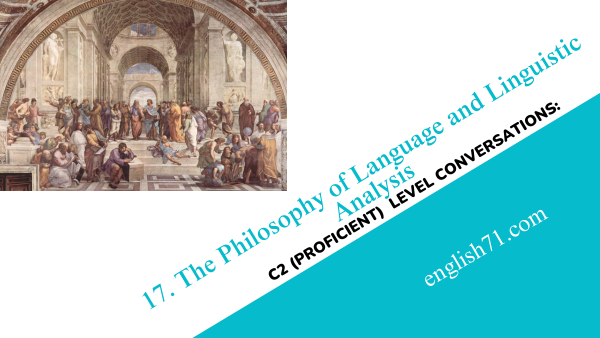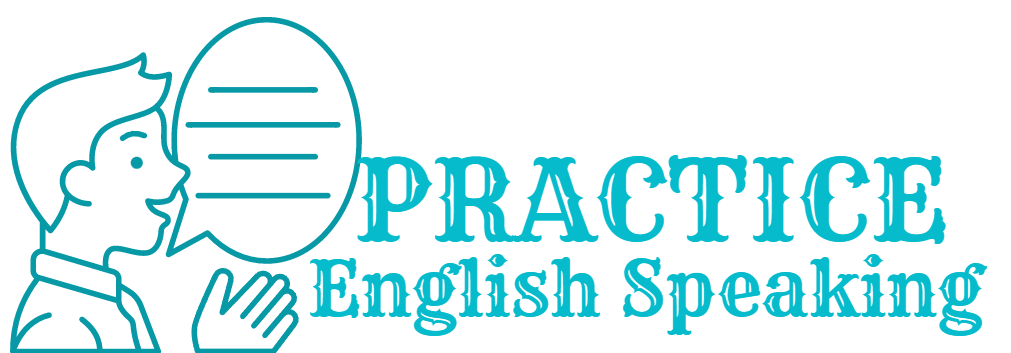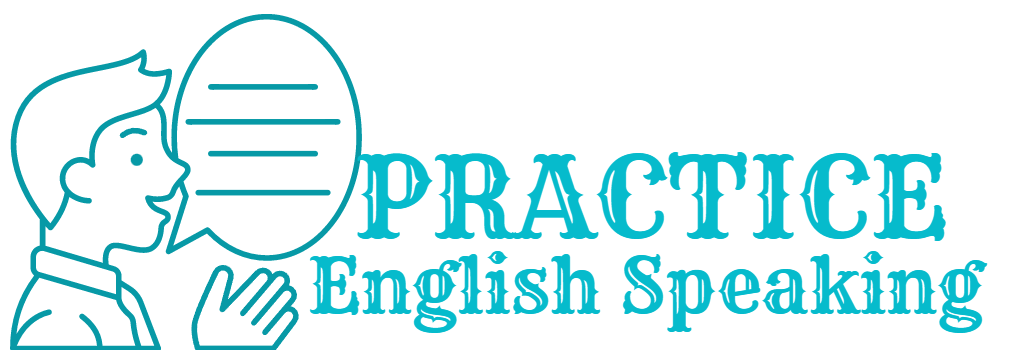C2 (Proficient) level Conversations: (17) The Philosophy of Language and Linguistic Analysis

Sophia: Hey, Peter! I’ve been diving deep into the philosophy of language lately. Have you ever explored it?
Peter: Absolutely, Sophia! It’s such a fascinating field. Where do you want to start?
Sophia: Well, I’ve been pondering over the relationship between language and reality. Do you think language shapes our perception of the world, or is it the other way around?
Peter: That’s a classic debate! I believe it’s a bit of both. Language certainly influences how we express our thoughts and interact with the world, but it’s also constrained by the realities we perceive.
Sophia: Interesting perspective! What about the nature of meaning? How do words acquire meaning, and is it subjective or objective?
Peter: Ah, the age-old question! I think meaning emerges from a complex interplay between usage, context, and intention. While there are objective aspects to meaning, like linguistic conventions, interpretation often involves subjective elements shaped by individual experiences.
Sophia: Right, so would you say that language is primarily a tool for communication, or does it also reveal deeper truths about the nature of reality?
Peter: It’s both, really. On one hand, language facilitates communication and social interaction, serving practical purposes. On the other hand, the nuances and structures of language offer insights into underlying cognitive processes and conceptual frameworks, shedding light on philosophical inquiries.
Sophia: Absolutely! And what about the relationship between language and thought? Do you think linguistic limitations constrain our ability to think certain thoughts?
Peter: It’s a fascinating concept. While language enables us to articulate and organize our thoughts, it’s also true that linguistic structures can shape the way we conceptualize the world. However, I believe that human cognition is incredibly flexible, allowing us to transcend linguistic boundaries and think in abstract and creative ways.
Sophia: I couldn’t agree more! Language is such a multifaceted phenomenon, isn’t it?
Peter: Definitely! It’s a rich field of study that continues to provoke thought and inspire inquiry. There’s always something new to explore and unravel in the philosophy of language.
Sophia: Absolutely! Thanks for this enlightening discussion, Peter. It’s been a pleasure delving into these philosophical questions with you.
Peter: Likewise, Sophia! It’s conversations like these that remind me why I’m so passionate about philosophy. Let’s continue exploring these ideas together.



Summary:
Sophia and Peter engage in a thought-provoking conversation about the philosophy of language and linguistic analysis. They explore various aspects, including the relationship between language and reality, the nature of meaning, the purpose of language, and its role in shaping thought. Their discussion delves into the complexities of language, highlighting its multifaceted nature and its significance in understanding human cognition and the world around us. Overall, their exchange demonstrates a shared enthusiasm for philosophical inquiry and a mutual appreciation for the depth and richness of linguistic exploration.

